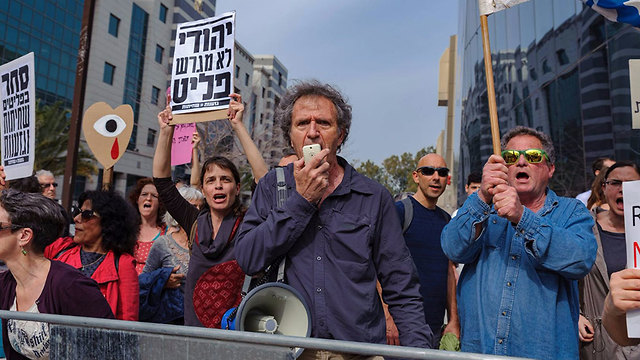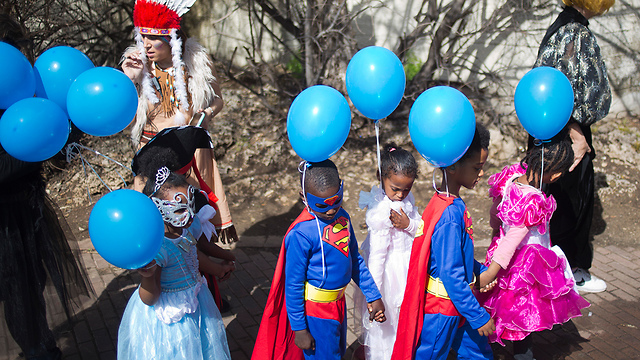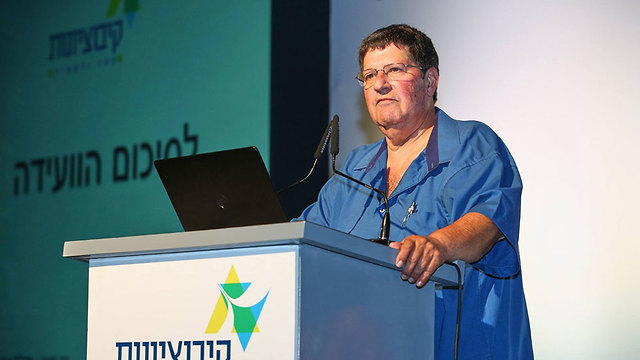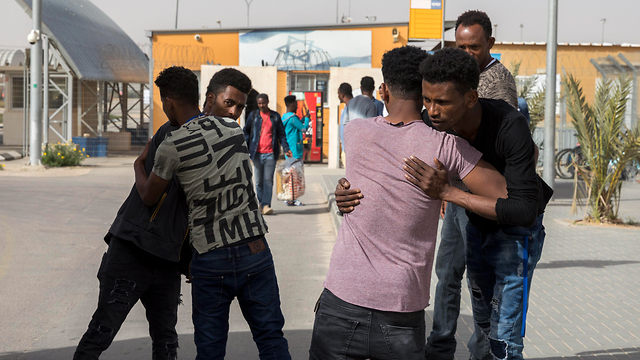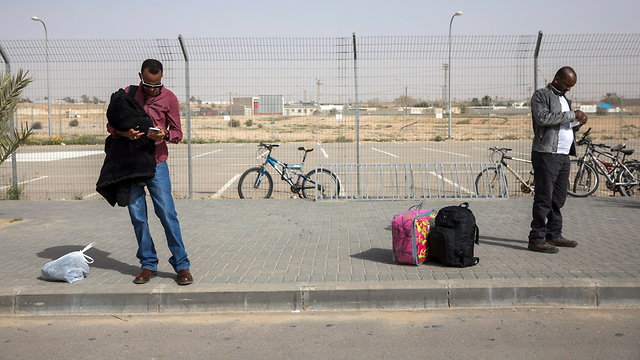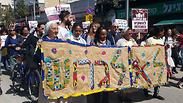

Families from kibbutzim, moshavim to shelter asylum seekers
Initiatives underway for Israeli families at kibbutzim, moshavim, to provide refuge for asylum seekers facing expulsion; efforts to resettle 1,000 African families from south Tel Aviv in periphery cities; resettlement's organizer: 'Government likes the idea.'
Over 2,000 families from kibbutzim and moshavim across the country have pledged to provide shelter to asylum seekers facing expulsion via three different initiatives opposing the government’s plan.
Dr. Avi Ofer of kibbutz Ma’anit is one of the driving forces behind the Kibbutz Movement’s efforts to settle asylum seekers at various homes among their members. “(Some) are already with host families across the country, naturally, it is a discreet matter,” he said.
In addition to the Kibbutz Movement’s initiative, two other schemes have the same goal—“Hospitality” by writer Tamar Verete and her brother, poet Yoram Verete, and Miklat Israel (Israeli shelter) by Reform rabbis Nava Hefetz, Tamara Shagas and Susan Silverman.
Kibbutz Sasa in the northern Galilee is one of the safe havens. Its members are pledging to provide work for asylum seekers and they do not fear exposure. The kibbutz has set aside four apartments for migrants, with a single mother with two children expected to move in before Passover.
“Some 2,250 people have signed up to host African asylum seekers—who they do not know—in their homes, despite the fact that it seems to be against the law,” said Dr. Ofer. “At first, they were very suspicious and hesitant and only a few were willing to participate. Most of those set for immediate expulsion prefer to go to prison with their heads held high and fight. But some are weak and sick and scared to go to prison, so they asked for help.”
He added, “For the first time, I understood the Jews in Europe, when the sword approaches the neck and you somehow try to suppress it.”
He continued, “There are great pictures of an asylum seeker holding the grandson of his host on his lap or of his daughters dressing up for Purim. As one who was involved in public struggles for 35 years, I can say that the reaction and recruitment to the initiative has been unprecedented. I've never seen anything like it.”
General Secretary of the Kibbutz Movement Nir Meir, along with Dr. Ofer, sent a request to all of Israel's kibbutzim asking them to absorb asylum seekers. They wrote, “We call on kibbutzim to make every effort to host and absorb asylum seekers, even if only for a few months, and provide shelter and work, as much as possible. They have work permits and can legally work. This is a decisive moment for us all and it can be our moment of pride. Please respond generously and according to our values as kibbutz members, Jews and human beings.”
The letter was also sent to President Reuven Rivlin, Prime Minister Benjamin Netanyahu and Interior Minister Aryeh Deri.
The organizers maintained contact with the asylum seekers' leadership in order to engender trust and they, in turn, signed up their men in Tel Aviv, Jerusalem and the Holot detention center, which will be closed down in two days.
A group of female Eritrean leaders are also partners to the initiative and solutions have already been found for a number of severe humanitarian cases.
Ofer added, "What we are doing, together with aid organizations—first and foremost the refugee’s assistance organization—is very structured. People heard about the deportation order and their immediate association is clear, their instinct is to hide. We hold orientation and clarification meetings for host families, then for interested asylum seekers, and we have attorneys and social workers volunteering with us throughout the process. We check their background to ensure they are constructive people so there are no problems.”
"There are many asylum seekers, especially single mothers, who are in very difficult situations and we help, not only according to the criteria of those who are candidates for immediate deportation, but also according to who really needs help," Ofer continued. "Sometimes there are emergency cases, (for example) suddenly there is someone who went through a work accident and he is homeless so I found him a host family very quickly. Until now, there was not one asylum seeker who asked for help and hospitality and did not receive it, nor will there be.”
"The whole matter of the expulsion is a terrible thing and it is a mark of Cain for the State of Israel. On the other hand, reactions I see in the public and the people I meet on the road are really amazing," concluded Ofer. "Most of the people who registered took into account that they may be acting against the law, and yet they think it's a law with a black flag raised above it. (Asylum seekers) tell us we have restored their faith in man.”
Initiative: absorbing 1,000 asylum seeker families in the periphery
The organization “Facing the Rising Sun” is working to resettle 1,000 families of asylum seekers from south Tel Aviv in towns on the periphery of the country. They are set to receive a list of the first 40 families who are interested in leaving squalid Tel Aviv neighborhoods. The resettlement is not set to take place until the end of the school year.
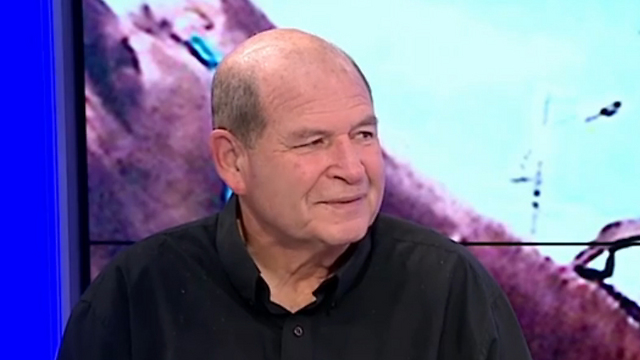
The organization is headed by Yoel Marshak, former director of the Kibbutz Movement's task force, and Yizhar Ben Sasson, a resident of the community expansion in Rosh HaNikra, and its members include residents of the periphery and asylum seekers alike.
"There are close to 1,500 families that are registered with us and are ready to resettle. This is not a matter of hospitality, but of long-term absorption. To take them out of south Tel Aviv, not to return, but rather to settle and work in the kibbutzim, but mainly in the cities such as Kiryat Shmona, Tiberias, Yeruham, even the Arava region and the Jordan Valley,” said Marshak.
He says they met with senior members of the Interior Ministry, including Director of the Administration of Border Crossings, Population and Immigration Prof. Shlomo Mor-Yosef. “We understood from them that this is a very positive move, now the state is considering joining and providing resources to this.”
The burden on the communities that will absorb the asylum seekers is not expected to be large, according to Marshak. "When I call the mayor of Kiryat Shmona or Afula, will he not accept one or two families? Certainly he will agree. They will work, pay rent, and a national manager should be appointed to advance this issue in an organized and gradual manner.”














